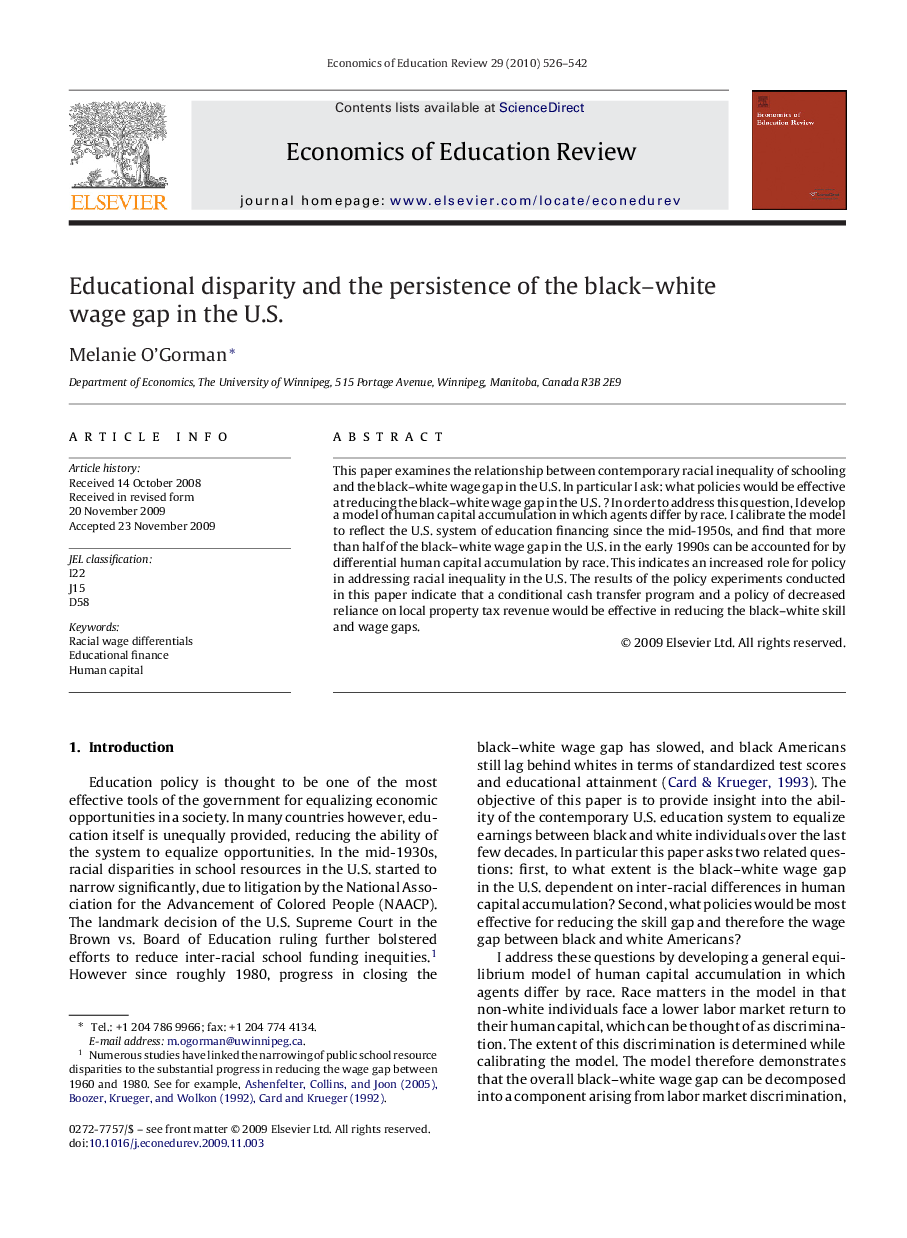| Article ID | Journal | Published Year | Pages | File Type |
|---|---|---|---|---|
| 354633 | Economics of Education Review | 2010 | 17 Pages |
This paper examines the relationship between contemporary racial inequality of schooling and the black–white wage gap in the U.S. In particular I ask: what policies would be effective at reducing the black–white wage gap in the U.S.? In order to address this question, I develop a model of human capital accumulation in which agents differ by race. I calibrate the model to reflect the U.S. system of education financing since the mid-1950s, and find that more than half of the black–white wage gap in the U.S. in the early 1990s can be accounted for by differential human capital accumulation by race. This indicates an increased role for policy in addressing racial inequality in the U.S. The results of the policy experiments conducted in this paper indicate that a conditional cash transfer program and a policy of decreased reliance on local property tax revenue would be effective in reducing the black–white skill and wage gaps.
